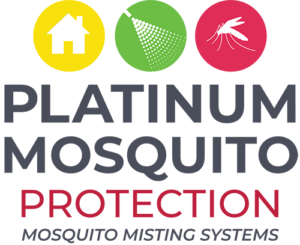Don’t become a mosquito’s snack
It’s a fact of life if you’re a runner – mosquitos love you. Odds are, more than your non-running friends and family. Researchers estimate that as many as 20 percents of people are inherently more attractive to mosquitos than the general population. If you are a runner, they likely see you as an even more delicious snack.
If this is you, never fear. There are things you can do to ward off these unwanted insect advances and to make the bites you do get feel better and heal faster.
Why they bite
When you run, your metabolic rate goes up, as does your production of carbon dioxide and lactic acid – three to four times higher than average. These two compounds are like cake and ice cream to mosquitos and your sweat-laden body after a run is like a dessert buffet.
Pregnant women traditionally have higher metabolic rates and higher body temperatures than non-pregnant women – by as much as 21 percent – and this only increases with exercise. Alcohol can also raise your metabolic rate so perhaps reconsider that celebratory beer after a long run, particularly at dusk in the summer.
Why the bites itch
When a female mosquito – the hunter of the pack – sinks its proboscis into your skin, it produces protein-rich saliva that your body identifies as a foreign body. It attacks the proteins using histamine which causes the site of the bite to swell up, turn red, and itch. This all happens within a matter of minutes and is most intense in the first bite you get from a specific species of mosquito. After that, your body recognizes that species’ proteins and produces defensive cells in response, which makes subsequent bites less intense. While that sounds great, there are over 3,000 mosquito species across the globe and the odds are high that you’ll continue to encounter new species throughout your life.
How to avoid them
Although the aforementioned statistics can be disheartening, there are proactive measures you can take to limit exposure and lessen the intensity of bites.
Try to avoid exercising outdoors at dusk or dawn. Even though these are the hours of the day when most of us actually have the time to exercise, if you can bypass them, you will have less mosquito exposure. Also avoid running near ponds, lakes, or other standing water.
Do your pre-run stretches and post-run cool-downs inside or in an enclosed space, particularly at dusk or dawn. Mosquitos most acutely sense your carbon dioxide, lactic acid, and other attractants at those times.
Dress appropriately. Mosquito-repellent clothing comes in all shapes and sizes, but in general, tight woven and light-colored fabrics are recommended. These tend to be long pants and long-sleeved shirts, which are not always ideal in warmer weather but can provide significant benefits regardless.
Don’t rely on repellent. Though bug spray is essential for protection when sitting, standing, or lightly moving, it can get diluted during intense physical exercise to the point where it no longer has much effect.
Swab, don’t scratch. Alcohol swabs are much more effective at treating bites than scratching, no matter how satisfying it may feel in the moment. Excessive scratching can inflame bites further and even lead to infection.
Protect yourself and your home
Mosquito prevention is essential to safe exercise and to a safe home. Protect yourself during a run with smart habits, appropriate gear, and a keen awareness of your surroundings. Consider protecting your home with an automatic misting system that blends seamlessly into your outdoor space. Contact us today for a free, on-site consultation.

